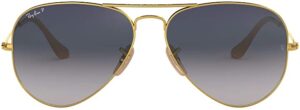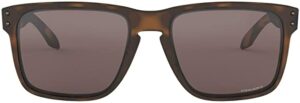Best Sunglasses
Best Sunglasses for Men

Best Sunglasses for Women

Best Sunglasses for Kids

Best Sunglasses for Overall Eye Protection

No matter what your style is, choosing a pair of sunglasses can be tiresome. There are a variety of things to look for when picking out the right pair — types and colors of lenses, polarisation, frame shapes and sizes — so it’s safe to say it can be a bit overwhelming. That’s why we’re here to help make this process as pain free as possible and give you guidance on what to look for when choosing the best pair of sunglasses for you.
Why you should buy sunglasses (if you haven’t done so already)
Help prevent cancer and disease
Long-term exposure to sunlight runs the risk of too much UV radiation, which is linked to eye cancer, cataracts, macular degeneration (vision change that gradually creates blurry vision over time), and photokeratitis (sunburn around the eyes). Sunglasses block out these harmful UV rays to protect your eyes.
Reduce squinting and protect sensitive eyes
Walking outside into the sunlight causes everyone to naturally want to squint their eyes against the brightness. While squinting itself isn’t harmful, it can lead to tension or fatigue around your eyes, potentially trigger headaches or migraines, or cause wrinkles to form around your eyes. People with light-colored eyes also tend to be more sensitive to sunlight, so it’s important to have a proper pair of sunglasses for extra eye protection.
What to look for in sunglasses
Lenses and UV protection
The most important factor to consider when searching for the right pair of sunglasses is the lenses and how much UV protection they offer. You want the lenses to have 100-percent UV (or 400nm, which is equivalent).
The three types of UV rays are UVA, UVB, and UVC. Each causes different eye issues, which means you need all three types of UV protection:
- UVA protection helps reduce wrinkles and other signs of aging
- UVB protection helps prevent burning
- UVC protection helps protect against cancer
For super bright days, pick up a pair of sunglasses with a darker lens. On cloudy, more overcast days, a lighter tinted lens is all you’ll need.
Size and fit
When trying to find a perfect frame, consider how it feels on your face — is it snug (but not too tight) against your temples and over your ears? Does the area around your nose fit or will it slide off your nose if you look down? If you require bifocals or thicker prescription lenses, is the frame large enough to fit them?
Frame size is also important to think about. Small sunglasses may be chic and in style, but they don’t offer as much eye protection. The larger the frames, the more skin around your eyes will be protected. Wraparound frames, for example, also protect your peripheral vision by preventing UV rays from entering the sides of your eyes. In the end, it all comes down to personal preference and which style you like on yourself.
Consider the activities you’re doing
Your lifestyle can play a big role in the style of sunglasses you buy. Your frames for cycling will be vastly different than the pair you grab to go out for lunch with your friends. When in doubt, don’t be afraid to buy more than one pair for multiple activities.
- If you are a frequent driver or on the water regularly, polarized lenses help reduce glare from these reflective surfaces. They don’t necessarily offer more UV protection, but they can make driving or boating easier and safer.
- Certain tinted lenses, such as amber, green, or grey, are better for outdoor sports. They improve contrast while protecting from UV rays, which can be helpful for athletes playing golf, baseball, or other outdoor sports.
- If you’re a runner or cycler, you’ll want something lightweight and properly fitted to stay in place.
Best Sunglasses for Men

These lightweight nylon Maui Jim frames are designed for all-day comfort and eye protection. They feature Maui Jim’s unique PolarizedPlus2 lens technology that protects against harmful UV rays while enhancing the natural colors and details your eyes see. The grey lenses are made with MauiPure to prevent shattering and scratches and eliminate glare, while offering the highest level of light reduction for those extra sunny days. They also protect against high-energy blue light radiation, helping to earn them the Skin Cancer Foundation Seal of Recommendation.
Best Sunglasses for Women

Originally designed in 1937 for U.S. aviators, these Ray-Ban sunglasses have quickly become one of the most iconic styles in the world. They are made with statement-making wire frames that are durable and built to last with multiple lens color options — crystal brown, crystal green, G-15 non-polarized, and more — that provide optimal clarity and 100% UV protection. These Aviators are incredibly comfortable for all-day wear while offering you top-notch eye protection.
Best Sunglasses for Kids

Did you know children’s eyes are more susceptible to the sunlight damage? These multiple coated children’s sunglasses by ATTCL are polarized to help protect against that sun damage while providing protection against other eye and face injuries. The frames are crafted with an ultra-light TR90 material that is flexible and virtually unbreakable, making them ideal for all outdoor activities and sports! Your kids will love the stylish, comfortable design and you’ll love the durability and ease of cleaning after a long day.
Best Sunglasses for Overall Eye Protection

These Oakley sunglasses are made with lightweight Plutonite lenses, offering 100% UV protection against all UVA, UVB, UVC rays, along with harmful blue light up to 400mm. These lenses are also designed with PRIZM Lens Technology, designed to enhance color, contrast, and detail to help you make the most of virtually any activity. You can also thank the patented high-definition optics for the superior clarity and sharp vision. The frames are made with a three-point fit, giving you precise performance to hold the lenses in perfect optical alignment. This fit also helps with all-day comfort, with contact only happening at the bridge of your nose and behind your temples.
FAQs about Sunglasses
You may have some questions when selecting the best sunglasses for you. Refer to these common queries below:
Do I need to wear sunglasses on cloudy days?
The short answer is, yes, you do need sunglasses on cloudy days. It may come as a surprise, but UV rays are as powerful as ever even with the clouds out. Clouds can help reduce the amount of harmful rays that reach the Earth’s surface, but they aren’t strong enough to stop them completely. In fact, clouds can actually “trap” UV rays in our atmosphere by blocking them from “bouncing” back up off the surface. This can increase the amount of UV ray exposure by as much as 75 percent! So keep up with the sunscreen and sunglasses, even if the sun isn’t shining brightly some days.
How do I properly clean my sunglasses?
Some sunglasses will come with a soft cloth to wipe the lens clean with on a daily basis. Residues on the arms can usually be cleaned off with the same cloth or a slightly damp paper towel. Don’t use anything rough or textured to wipe them with — it could scratch the lenses.
How do polarized lenses work?
Reflective surfaces such as water, glass, snow, or concrete polarize sunlight, concentrating its waves in a single direction. This causes excessive “dazzle” and brightness that strains your eyes. The molecules coating polarized sunglasses allow normal concentrations of the sunlight to pass, but block out the intense concentrations of reflected polarized light.

